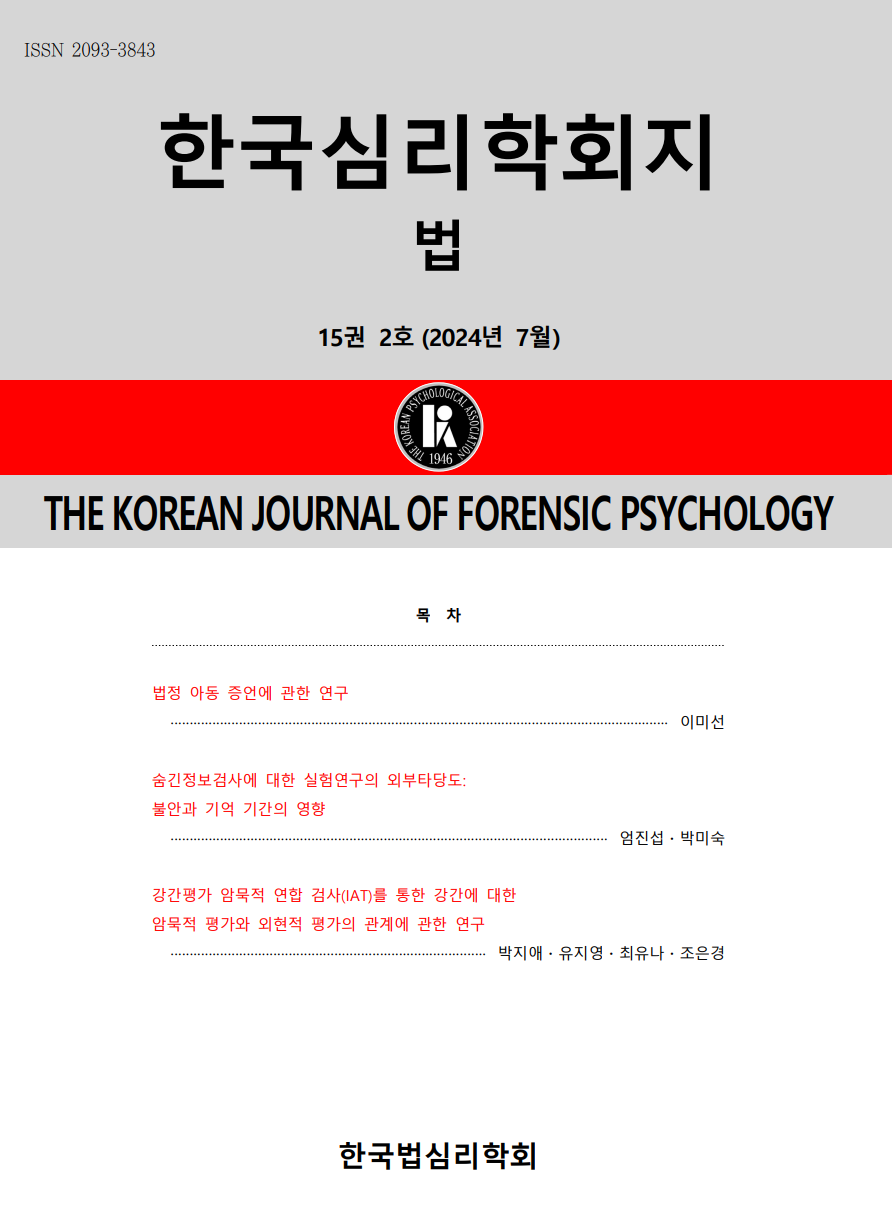open access
메뉴
open access
메뉴 ISSN : 2093-3843
ISSN : 2093-3843
Between 2016 and 2017, a study examined 91 cases in which defendants confessed during the investigation and trial processes, verifying the consistency between these confessions and the results of psychophysiological detection of deception(PDD) tests conducted by the Supreme Prosecutors' Office of the Republic of Korea(SPO). The accuracy during all decision-making stages conducted by the SPO exceeded 90%, surpassing the accuracy recorded by automated scoring and analysis programs and that reported by the American Polygraph Association using similar techniques. Signal detection theory was applied to calculate sensitivity (d') and decision criterion (c), revealing that the sensitivity at each decision-making stage-from the examiner's initial opinion to the review opinion by SPO examiners and the final opinion- exceeded 3. This sensitivity was higher than that recorded by automated scoring programs or in previous research findings. In terms of decision criteria (c), SPO examiners used relatively conservative criteria in decision-making, whereas the automated scoring program made decisions based on more liberal criteria. Additionally, in the case of the examiners, although the rate of inconclusive judgments was higher, it was observed that errors such as the high false alarm rates seen in the automated scoring program were smaller. This study, despite the possibility that the accuracy may be overstated due to the nature of confession-based research, provides empirical data based on actual cases to better understand the performance and characteristics of PDD tests conducted by SPO.